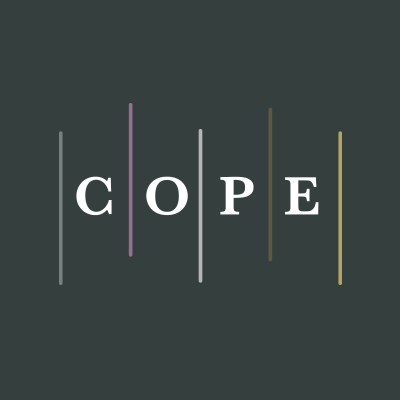Submissions
Submission Preparation Checklist
As part of the submission process, authors are required to check off their submission's compliance with all of the following items, and submissions may be returned to authors that do not adhere to these guidelines.- The submission has not been previously published, nor is it before another journal for consideration (or an explanation has been provided in Comments to the Editor).
- The submission file is in OpenOffice, Microsoft Word, or RTF document file format.
- Where available, URLs for the references have been provided.
- The text is single-spaced; uses a 12-point font; employs italics, rather than underlining (except with URL addresses); and all illustrations, figures, and tables are placed within the text at the appropriate points, rather than at the end.
- The text adheres to the stylistic and bibliographic requirements outlined in the Author Guidelines.
Articles
Section default policyCopyright Notice
Copyright Notice for Insights into Modern Education (i-ME)
ISSN: 3057-0050 (Online)
Authors who publish with the Insights into Modern Education (i-ME) retain the copyright to their work. By submitting their articles, authors agree to have their work published under a Creative Commons Attribution License (CC BY). This license allows others to freely share, distribute, and reproduce the work, provided that the original author and source are appropriately credited. I-ME reserves the right to publish and disseminate the work while the author maintains control over its future use.
Privacy Statement
Privacy Statement
The names and email addresses entered in this journal site will be used exclusively for the stated purposes of this journal and will not be made available for any other purpose or to any other party.
Publication Ethics
Publication Ethics for the Insights into Modern Education (i-ME)
I-ME adheres to the guidelines established by the Committee on Publication Ethics (COPE), ensuring the highest ethical standards throughout the publication process.
Duties of Authors
(1) Ensure the manuscript is original and not under consideration elsewhere.
(2) Avoid plagiarism and properly cite all sources.
(3) Follow the journal’s submission guidelines and formatting requirements.
(4) Contribute meaningfully to the research and writing process.
(5) Disclose any conflicts of interest and funding sources.
(6) Acknowledge contributors with their consent.
(7) Present findings truthfully without data manipulation or fabrication.
Duties of Editors
(1) Uphold impartiality in selecting high-quality manuscripts that align with the journal's scope.
(2) Maintain confidentiality and use credible plagiarism detection software.
(3) Avoid conflicts of interest and ensure no claim on the submitted manuscript.
(4) Proceed with revocation if plagiarism or falsification is detected, as per COPE guidelines.
Duties of Reviewers
(1) Keep the manuscript confidential and avoid any conflicts of interest.
(2) Provide fair and evidence-based evaluations within their area of expertise.
(3) Notify the editor of any suspected plagiarism.
(4) Avoid claiming ownership of any part of the manuscript under review.
The Journal of Exploration in Interdisciplinary Methodologies follows COPE's ethical guidelines to ensure transparency, accountability, and integrity in scholarly publishing.




